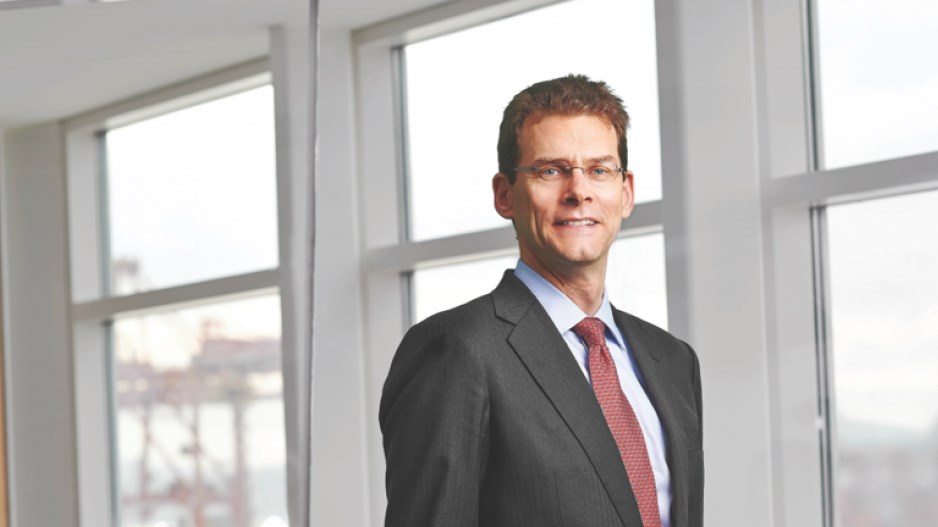Vancouver’s port has weathered multiple crises in the past 20 months but needs to deal with an industrial land shortage, climate change and a lack of containers, Vancouver Fraser Port Authority CEO Robin Silvester said November 25.
The past week’s storms and resulting supply chain disruptions have underscored the need to respond to climate change challenges and be prepared for emergencies that result from it, he told a packed Vancouver hotel ballroom at the Greater Vancouver Board of Trade’s first pandemic hybrid event.
Silvester praised the CN and CP railway companies for restoring service between the West Coast and the rest of Canada within eight days of recent catastrophic flooding in B.C.
“The port was affected,” he said, noting that a disruption at Vancouver, Canada’s largest port, affects the entire country.
Silvester said the need to respond to current and future climate change challenges and emergencies is now “urgent.”
“We know the future must include decarbonization,” he said, noting multiple projects the port is participating in to lower emissions from its operations.
Silvester said there is a pressing need to balance “just in time and just in case.”
He said these “tumultuous” times have shown the port what must be done to shock-proof its operations.
But Silvester added that “the port has remained remarkably fluid and trade has actually grown over the period.”
He said infrastructure investments involving a range of partners, including industry and government, have assisted in that fluidity.
But he warned that the port is facing a growing industrial land shortage.
”We don’t have sufficient land around the port for transloading and container shortage.”
What that means, he said, is that big shippers such as Amazon (Nasdaq:AMZN) will look elsewhere.
Further, Silvester said, it means cargoes could be shipped to Toronto and then back to Vancouver by plane, resulting in increased greenhouse gas emissions.
“I’ve been sounding the alarm about the looming land shortage,” he said. “It’s here.
“We have the lowest availability of industrial buildings in North America.”
And, Silvester stressed, the federal government must approve the port authority's Roberts Bank 2 container terminal project in Tsawwassen soon to handle rapidly rising trade demands.




